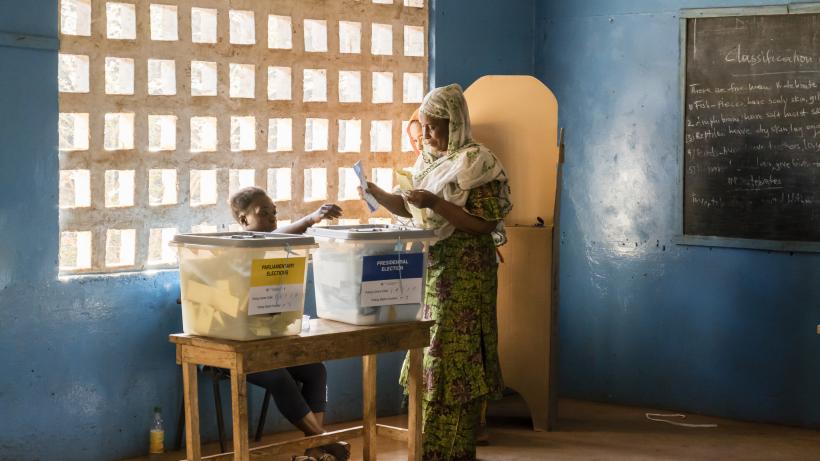
Election debates to increase political accountability
Well-functioning democratic structures and strong political governance are central to economic development. However, a lack of information about elections in younger democracies can weaken the accountability of elected politicians and, consequently, decision-making. Our research has found that giving voters access to information through debates between rival candidates can significantly improve their knowledge and increase democratic participation.
What is the challenge?
Political information can be difficult to access in developing countries because of fledgeling democratic structures and poor media penetration. Citizens may vote for candidates with little knowledge of their policy stances, qualifications, previous performance, or potential remit. Although election debates arguably inform voter deliberation, there is a knowledge gap around the impact debates have on voters’ decisions.
Addressing the problem
IGC researchers in Sierra Leone and Ghana have worked with civil society groups to broadcast debates between parliamentary candidates. They looked at the effects that different types of broadcasts had on voter knowledge, behaviour, and the subsequent performance of elected MPs.
Research results:
- Voter knowledge: Voters showed improved awareness of specific candidates, their policies, and general political knowledge for several weeks after viewing a debate. In Sierra Leone, the proportion of voters who could identify whether a candidate was an incumbent increased from 49% to 60% and the proportion who knew what the candidates would prioritise government spending on increased from 14% to 29%.
- Voting preferences: Participants reported that debates helped inform their choices at the ballot box. They were more likely to vote for candidates who shared their policy priorities and for higher quality candidates. In Ghana, debates improved the general perception of candidates and had a moderating effect on voters with strong partisan tendencies.
- Politicians’ performance: In Sierra Leone, elected MPs who participated in debates spent about 2.5 times more on development projects, made more community visits, and held more public meetings than the comparison group. In addition, constituents whose MPs participated in debates were more like to say their MP was doing “a good job in promoting” various sectors in their constituency.
Impact
Following the success of the 2012 study in Sierra Leone, the IGC partnered with the National Electoral Commission, the Political Parties Registration Commission, and major political parties to assess the feasibility of scaling up the project in the run-up to the 2018 elections in Sierra Leone. Additional IGC projects hosted both intra- and inter-party debates, with the latter MP debates broadcast on various television channels and across 40 radio stations.
The IGC also used these newly developed links to run workshops with political parties on “the economic challenges political party manifestos must address”, which provided information on issues such as private sector development and urbanisation.
Findings from Ghana were presented to the National Democratic Institute and have triggered conversations on the design of similar programmes in the future.
These projects have implications for other developing countries and how they can improve their democratic engagement and increase government accountability. Findings suggest that low-cost means of showing debates across communities can play an important role in aiding the deliberation of voters and consequently strengthening young democracies.
- The impact of information on voter knowledge and engagement: Evidence from the 2012 elections in Sierra Leone
Kelly Bidwell, Rachel Glennerster, Katherine Casey
- Project page: Election debates in Sierra Leone: Scoping for scale-up
Rachel Glennerster
- Do candidate debates strengthen democracy? A field experiment on the effects of debates on voter behaviour and electoral accountability
Sarah Brierley, Eric Kramon, George Ofosu
- Blog: The impact of parliamentary debates on Ghana’s 2016 elections
- Debates: The Impact of Voter Knowledge Initiatives in Sierra Leone (IPA project page)

